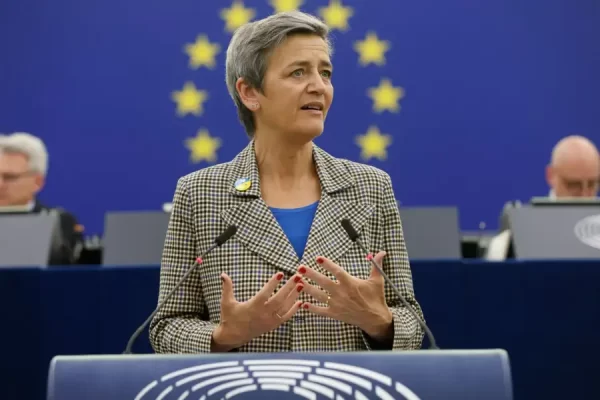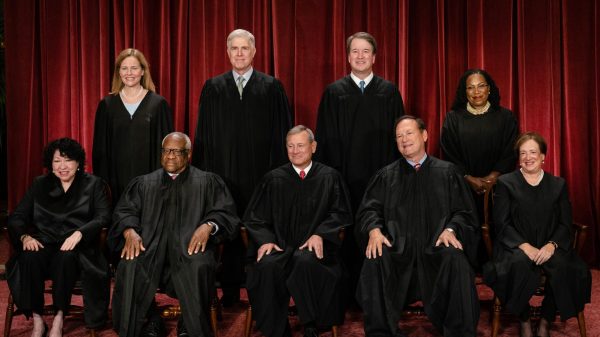Finland joins NATO threatening Russian position in Russia-Ukraine war
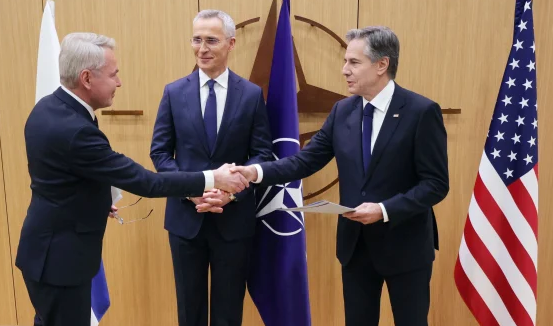
Pekka Havisto (left), Finnish Foreign affairs minister, shakes hands with Anthony Blinken (right), Secretary of State, with Jens Stoltenberg, Secretary-General, in the middle, on April 4, 2023 at NATO headquarters in Brussels.
Upon first glance, Finland’s integration into the North Atlantic Treaty Organization (NATO) might seem like a swift exchange of documents. but it is much more than a basic alliance.
This strategic decision played a crucial role in contributing to NATO’s position in the ongoing Russia-Ukraine war and preventing the spread of Russian influence.
NATO is a global security alliance created by the United States, Canada, and Western Europe with the goal of maintaining democracy and freedom for each country included. One primary military value that NATO promises to uphold is that each allied country can administer troops and weaponry in times of need.
Finland’s entrance into NATO on April 4, 2023, poses an increased threat to Russia.
The Scandinavian country’s addition to NATO allowed it to administer a doubled military along its shared “830-mile border” with Russia, opening it to a possible entry into the Russia-Ukraine war.
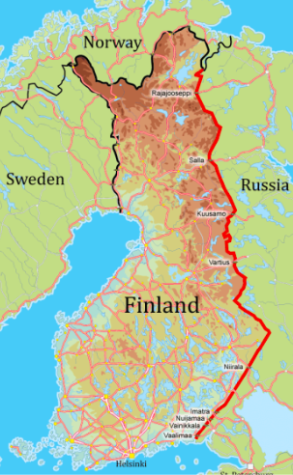
“This will make Finland safer and NATO stronger,” Joe Stolenberg, head of NATO, said.
Additionally, Finland’s location and its extensive artillery provide Western European NATO members with access to Finnish ports, sea lanes, and 1,500 artillery weapons including 700 howitzers, 700 heavy mortars, and 100 rocket launcher systems.
“Geographically, their addition to the alliance adds a huge, difficult-to-defend border that complicates Putin’s calculus,” said retired U.S. admiral and NATO military commander, James G. Stavridis.
The alliance also helped Finland escape Russia’s attempts to control their freedom and restrict their sphere of influence.
In response, Kremlin spokesman Dmitri S. Peskow claimed that Finland’s involvement in NATO was an attack that “Forces [Russia] to take countermeasures in tactical and strategic terms,”
In order to prepare for Russian retaliation, the U.S. sent Finland a $2.6 billion package of aid including $500 billion for ammunition and $2.1 billion to buy munitions and radar for Ukrainian defense.
Along with Finland, Sweden also applied for membership in NATO.
However, this application is currently blocked by Turkey and Hungary.
According to Reuters, Turkey claims that “Stockholm harbors members of what it considers terrorist groups.”
Turkey also claims that Sweden harbored hate crimes against Islam due to an incident in Stockholm where protests included the burning of the Quran, a Muslim holy book, and on a “separate occasion” where a Turkish politician, Recep Tayyap Erogdan, was hanged.
Sweden opposed and claimed that both incidents were justified under “free speech”.
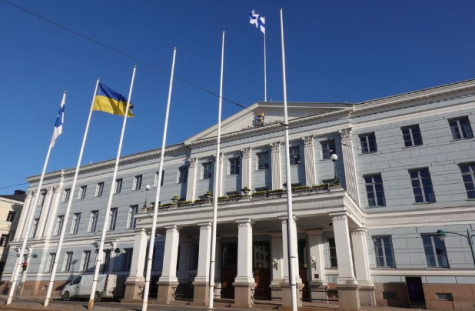
According to Reuters, Hungary objected to Sweden’s membership due to its “hostile attitude towards Budapest” and “Swedish criticism of [Hungarian] Prime Minister, Viktor Orban, over his [violation] of the rule of law.”
Despite this, Finland supports the idea that NATO is incomplete without Finland’s membership and advocates for its approval into the alliance.
Regarding Finland’s membership, NATO agrees that Finland needs to take some time fully integrate into NATO by thinking “collectively, adapting its military strategy, and [assessing its military strategy due to its onset access to American nuclear arms], said New York Times.
Overall, NATO’s ratification of Finland’s application into the organization has helped strengthen the Baltic alliance.
“Today, we are more united than ever. And together strengthened by our newest ally, Finland, we will continue to preserve trans-Atlantic security, defend every inch of NATO territory, and meet any and all challenges we face,” said U.S. President Biden.


